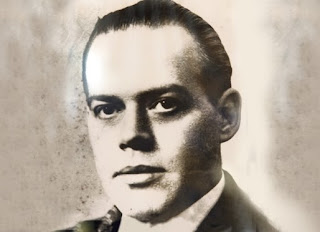St.
Jordi's day (St. George's day) in my teens, during the Franco years, was a day
of national reaffirmation where in a festive manner, people walked through the
streets and stopped at the stands knowing that we expressed our will to be
Catalan. The latest releases of fiction and nonfiction books, and Catalan
discography, with the great myths of literature, essay or music were an
unattainable gift. Towards the end of the Franco regime, with the existence of
the unified platform of the Assembly of Catalonia, St. Jordi's day took a more
explicit political dimension of struggle for our liberties.
The 60s
was the time when records by Catalan singer song writers became very popular.
The late singers José Guardiola, Ramon Calduch and others recorded new versions
of Italian hits in particular. Also, we had the first records by Setze Jutges
and Raimon. In the late 60s, we saw the appearance of many folk musicians, from
Pau Riba to Jaume Sisa. And in the early 70s, we saw the huge success gained by
Llach, Serrat, Ovidi Montllor, Maria del Mar Bonet. The good literature of that
time with works that marked my readings then were Mercé Rodoreda, Joan Sales,
Pere Calders, Joan Perucho, Josep V. Foix, Pere IV, Espriu. Among the classics,
the complete works by Salvat Papasseit. And the first books by those who I
shared militancy or sympathies with for PSAN (National Liberation Socialist
Party): Jaume Fuster, Quim Monzó, M. Antonia Olivé, Xavier Bru de Sala, Joan
Rendé, Ramon Solsona, Pep Albanell.
Sant
Jordi's day was also lived through youth organizations like scouts and outdoors
organizations as an opportunity to organize summer camps by selling roses.
Usually calculations did not always fit the market demand: at midday we would
run out of them or we had to sell them in the evening at a discount.
All of
this happened right in my city, at the heart of life from la Plana de l'Om and
el Born, to Pere III Avenue and Guimerà
Street. A nerve centre of shops where the emblematic book stands of that
time – there are no longer any of those: the symbol being La Xipell – were
reinforced by a fleet of collaborators recruited among friends and
acquaintances.
The
visual landscape was filling up quietly but unstoppably with Catalan flags
being used to cover the sides of the tables, as bookmarks or in combinations of
flowers. And the communication landscape breathed, for one day, a test of
freedom, with most of the Castilian press -the only one- reporters filling the
few spaces of freedom to overcome them.
These
will be forever the nostalgic St. Jordi's days in my mind. I just wish that in
a few years I might be able to do without the nostalgia to describe the current
St. Jordi's days, because we will be able to live them with full normalcy. The
normalcy that only freedom can give.
Josep Huguet
Josep Huguet Biosca, former Minister of the Government of Catalonia (2004-2010).
President of the Irla Foundation.
Industrial engineering.
Spanish versionPresident of the Irla Foundation.
Industrial engineering.











































